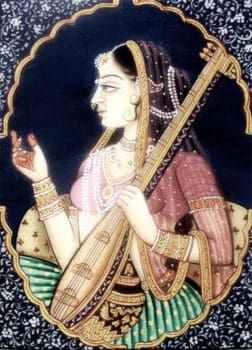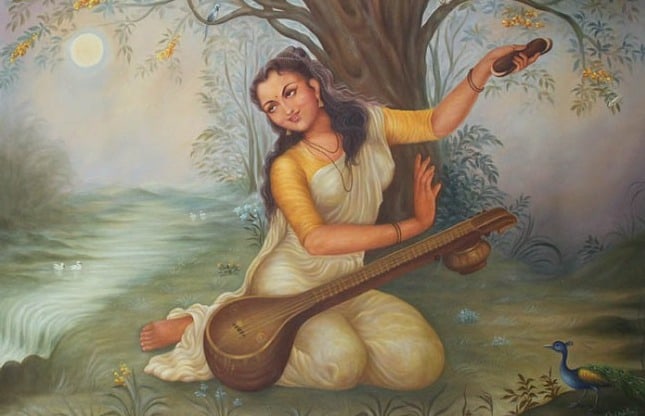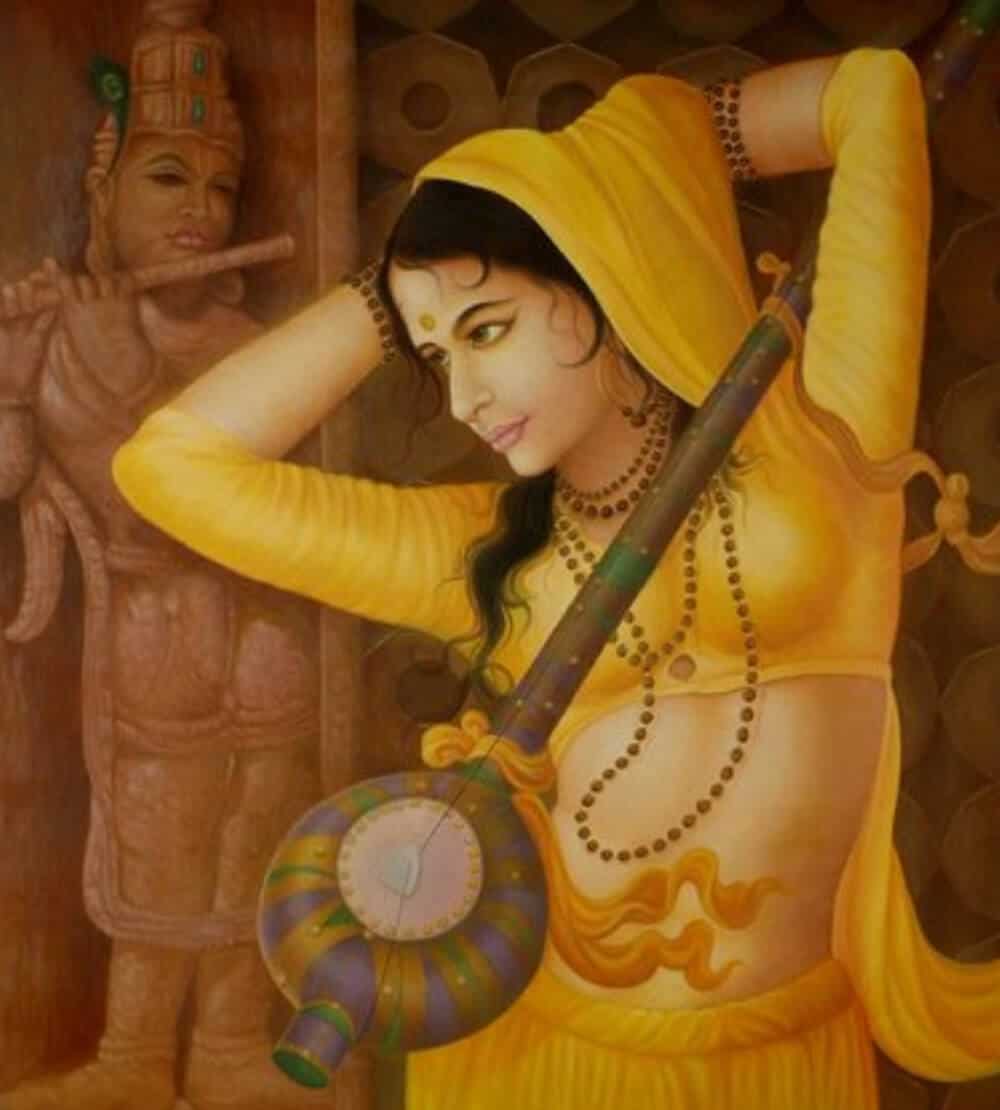Walking in the footsteps of Mirabai
A journey in India: Walking in the footsteps of Mirabai
In October 2014, I undertook a cultural expedition to walk in the footsteps of Mirabai (also known as Mira Bai or Meera Bai). Mirabai was a 16th century Rajasthani princess, a composer of devotional songs and a mystic who fought against convention to give voice to her spiritual yearnings. She travelled widely in Rajasthan, Gujarat, and Uttar Pradesh in north India. On this trip to uncover the significance and mythology of Mirabai, and I traced her life through her journeys. Read on to find out more information about Mirabai, her poems, and some images.
Mirabai’s life is significant, and has relevance today, because her story parallels the struggle many women have to live a fulfilled, creative life — when society pressures them to settle down, marry and devote their lives to their domestic obligations and “duties.”
Mirabai: A symbol for women’s freedom

Mirabai escaped and travelled widely, journeying across country to Vrindavan and Mathura, playground of Krishna, and to Dwarka in Gujarat, site of an important Krishna temple. Eventually, a deputation of men from Chittor found her in Dwarka, but before they could abduct her, she disappeared while singing in the temple. All that was found was her sari, draped around the Krishna murti.
Many legends swirl around the myth Mirabai. It was said a sadhu (holy man) gave her a tiny statue of Krishna when she was a child, and that was when her love for the god was born. It was said she survived attempts to take her life through divine intervention: poison turned to nectar, a bed of blades turned to petals. It was said Emperor Akbar came to hear her, in disguise as a sadhu.
Today, Mirabai is considered one of the great female saints of India and her songs are still sung. Moreover, there have been hundreds of songs composed in her honour and there are festivals devoted to her that take place around the time of Dusshera in Rajasthan. She is still very much alive today in the hearts of Indians.

Painting of Mirabai by GR Sharma
A sample of Mirabai poems
Mirabai’s poetry was unique in her day — much more straightforward, emotional, honest and vulnerable. The strength and power of her words stand to this day, a testament to her courage, love and talent.
NOTHING IS REALLY MINE
Nothing is really mine except Krishna.
O my parents, I have searched the world
And found nothing worthy of love.
Hence I am a stranger amidst my kinfolk
And an exile from their company,
Since I seek the companionship of holy men;
There alone do I feel happy,
In the world I only weep.
I planted the creeper of love
And silently watered it with my tears;
Now it has grown and overspread my dwelling.
You offered me a cup of poison
Which I drank with joy.
Mira is absorbed in contemplation of Krishna,
She is with God and all is well!

The Mirabai expedition itinerary and route
I travelled for about four weeks on my Mirabai itinerary. I started from Delhi and visited the following places, travelling by train and
- Mirabai’s home (now a museum) in Merta, Rajasthan
- The Mirabai Temple, Merta, Rajasthan
- The Mirabai Temple at Chittogarh Fort, and the ruins of her palace
- The Krishna Temple in Dwarka, Gujarat, where she disappeared
Comments
Post a Comment